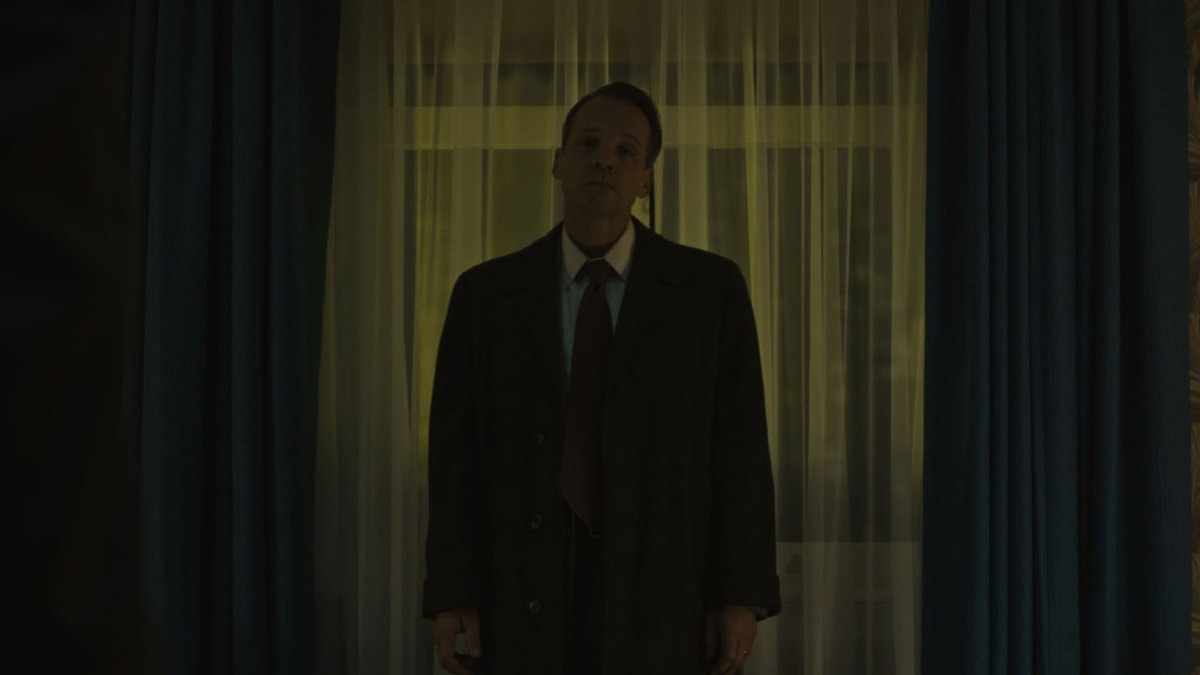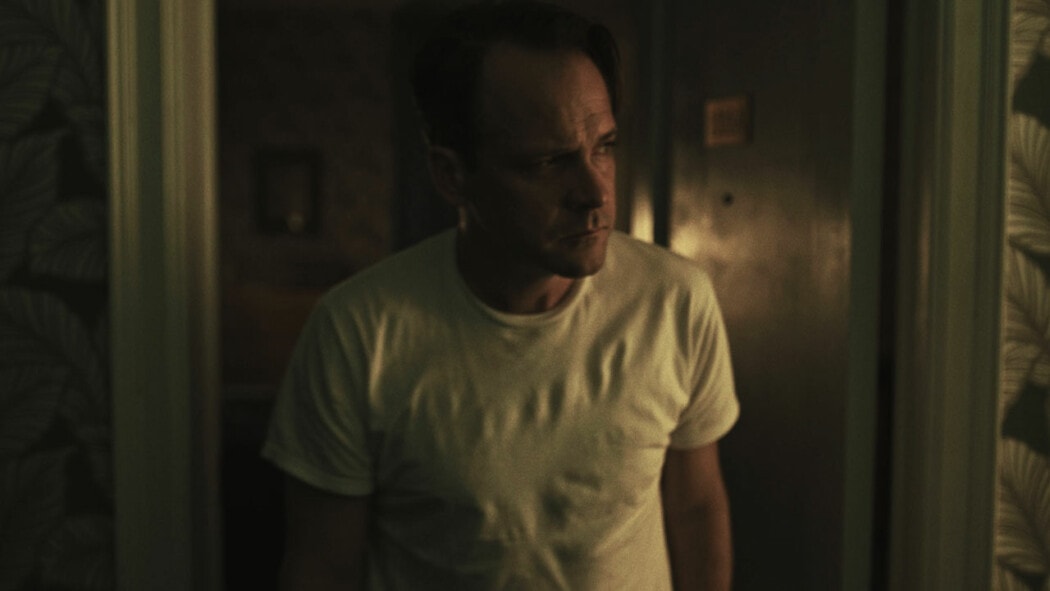Netflix’s Wormwood, a docuseries that blends true crime with a chilling narrative of government conspiracy, has been unsettling viewers with its deep dive into the murky waters of historical truth and paranoia.
This series, directed by Errol Morris, is not just another entry in the true crime genre; it is a compelling journey into the heart of American history’s dark secrets.
The show’s exploration of the mysterious death of scientist Frank Olson and the subsequent cover-up has left audiences questioning what else might be lurking in the shadows of governmental archives.
Unraveling the Mystery of Wormwood

Credit: Netflix
READ MORE: 3 Body Problem Season 2 On Netflix: Renewed Or Cancelled?
At the core of Wormwood is the story of Frank Olson, an American biological warfare scientist who died in 1953 under suspicious circumstances.
The series meticulously deconstructs the events leading to his death, blending interviews, archival footage, and reenactments to create a narrative that is as engaging as it is troubling.
Olson’s death, initially ruled as a suicide, is examined through the lens of his son, Eric, who has spent decades seeking the truth about his father’s fate.
The Blurring Lines Between Fact and Fiction

Credit: Netflix
Wormwood stands out for its cinematic approach to storytelling, where fact and fiction are interwoven to challenge the viewer’s perception of truth.
Morris’s use of dramatized sequences, led by actors like Peter Sarsgaard, adds a layer of narrative depth that transforms the docuseries into a gripping psychological thriller.
The Impact of Wormwood on True Crime Narratives

Credit: Netflix
READ MORE: When Will Parasyte: The Grey Season 2 Be Released On Netflix?
Since its release, Wormwood has redefined the true crime documentary format, emphasizing the psychological impact of seeking truth within a web of lies and deception.
The series not only delves into the historical context of the Cold War and Project MKUltra but also presents a poignant exploration of the human cost of obsession and the search for justice.
Wormwood and the Culture of Paranoia
The true crime genre often leaves viewers with a sense of unease, but Wormwood elevates this to new heights, instilling a profound sense of paranoia and mistrust.
By focusing on the narrative of a man who was unwittingly dragged into a world of espionage and mind-control experiments, the series taps into deep-seated fears about government overreach and secrecy.
Final thoughts on this true crime documentary series on Netflix

Credit: Netflix
READ MORE: When Will Night Coppers Season 2 Episode 4 Be Released On Channel 4?
Wormwood is a masterful blend of investigative journalism, historical inquiry, and narrative storytelling that captivates and unsettles in equal measure.
Its ability to make viewers paranoid stems not just from the chilling story it tells but from the broader questions it raises about truth, power, and the nature of reality.
As Wormwood continues to be a topic of discussion and analysis, its place in the true crime genre is secured not just by its subject matter but by its innovative approach to storytelling.
This Netflix series is a must-watch for anyone interested in the intersections of history, psychology, and cinema, proving that sometimes the most paranoid fears are grounded in reality.
What do you make of this report?
Are you going to watch this true crime documentary on Netflix?
Does it sound like something that would interest you?
We’d love to hear your thoughts on this report.
You can stream all of Wormwood’s episodes on Netflix right now.















